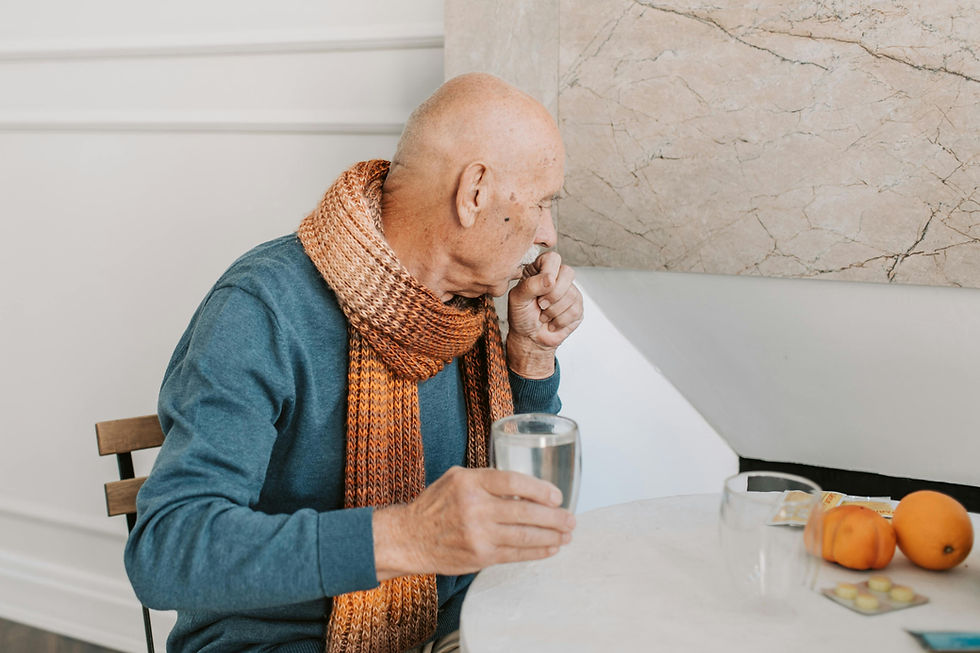Benefits of Attending a Support Group
- Health Projects Center

- Nov 18, 2024
- 2 min read
Christina Andrade
Becoming an informal family caregiver to someone suffering from a degenerative condition can be an overwhelming experience for the spouse, children, and other relatives. It is normal to feel alone with your problems and try to tackle them all by yourself. We may turn to other family members, close friends, or colleagues for help. Sometimes this works, but many people close to you may struggle to relate or understand what you are going through. They might be too focused on telling you what to do instead of just listening. That is why support groups were created.
Support groups allow those facing the difficult task of daily caregiving to benefit from interaction and support from other people in similar situations. Many caregivers benefit from being with people who are likely to have a common experience and may understand what one another is going through. Regularly attending a support group while caregiving can help you survive and thrive.
Groups offer a safe, confidential place for sharing and information. You will learn about resources and services available to you or your loved one. You’ll receive encouragement from others to care for yourself as well as you care for your loved one. You’ll learn more about coping with daily challenges and dealing with feelings through shared experiences. The benefit of learning more about the disease, and its process and building a tool kit of tips and tricks is beneficial to you to the person you are caring for. In a support group, you are surrounded by the best possible people to get advice. They can offer practical solutions that you can trust will work or have not worked in the past for others. Members’ stories may even stop you from going down that rabbit hole. Listening to the stories of others facing similar challenges can also help you feel less alone on your journey.
Researchers have said that having a strong support system has many positive benefits. Some of the best benefits include:
Higher levels of well-being
Better coping skills
A longer, healthier life
Having a support system has also been proven to reduce depression, anxiety and stress.
It's normal to feel nervous about joining a new group, and it may take a few meetings to feel comfortable sharing your thoughts or experiences. Simply listening can also be very helpful. A good group facilitator or leader understands this and will help you feel relaxed and included even if you aren't ready to share everything.
Not every group will be a good fit, and that’s okay. A good goal is to find a group that supports you and makes you feel comfortable, and it may take a few tries to find the best fit. You may want to attend a group two to three times before considering moving on to another group.
Remember that a support group isn't a substitute for regular emotional care. Let your doctor know that you're participating in a support group. If you don't think a support group is appropriate for you, talk to your doctor about counseling or other types of therapy.
For more information on Del Mar Caregiver Resource Center's support groups, please visit our website or call (800) 624-8304.








